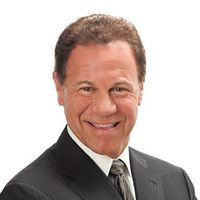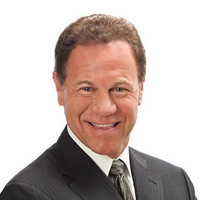3 Reasons Target Date Funds Aren’t Right for Anyone!
Sure, they're an easy way to plan for retirement, but those who take the easy way out could be shortchanging themselves.


Profit and prosper with the best of Kiplinger's advice on investing, taxes, retirement, personal finance and much more. Delivered daily. Enter your email in the box and click Sign Me Up.
You are now subscribed
Your newsletter sign-up was successful
Want to add more newsletters?

Delivered daily
Kiplinger Today
Profit and prosper with the best of Kiplinger's advice on investing, taxes, retirement, personal finance and much more delivered daily. Smart money moves start here.

Sent five days a week
Kiplinger A Step Ahead
Get practical help to make better financial decisions in your everyday life, from spending to savings on top deals.

Delivered daily
Kiplinger Closing Bell
Get today's biggest financial and investing headlines delivered to your inbox every day the U.S. stock market is open.

Sent twice a week
Kiplinger Adviser Intel
Financial pros across the country share best practices and fresh tactics to preserve and grow your wealth.

Delivered weekly
Kiplinger Tax Tips
Trim your federal and state tax bills with practical tax-planning and tax-cutting strategies.

Sent twice a week
Kiplinger Retirement Tips
Your twice-a-week guide to planning and enjoying a financially secure and richly rewarding retirement

Sent bimonthly.
Kiplinger Adviser Angle
Insights for advisers, wealth managers and other financial professionals.

Sent twice a week
Kiplinger Investing Weekly
Your twice-a-week roundup of promising stocks, funds, companies and industries you should consider, ones you should avoid, and why.

Sent weekly for six weeks
Kiplinger Invest for Retirement
Your step-by-step six-part series on how to invest for retirement, from devising a successful strategy to exactly which investments to choose.
I know that the title of this newsletter is a bit provocative because you must be thinking, “They must be right for someone?” The answer is they are not right for anyone, because they try to fit everyone during many years, some as many as 40 years.
Assets in target date funds swelled to more than $880 billion in 2016, according to Morningstar. That’s a number that’s high enough to scare me. Why am I so against target date funds? There are many reasons; let me share three.
1. Bonds aren’t a sure thing for retirees.
The first problem with target date funds is that they are trying to predict the future by saying when you retire it is a good idea to have most of your assets in bonds vs. stocks.
From just $107.88 $24.99 for Kiplinger Personal Finance
Become a smarter, better informed investor. Subscribe from just $107.88 $24.99, plus get up to 4 Special Issues

Sign up for Kiplinger’s Free Newsletters
Profit and prosper with the best of expert advice on investing, taxes, retirement, personal finance and more - straight to your e-mail.
Profit and prosper with the best of expert advice - straight to your e-mail.
We are currently at the end of a long bull market in bonds. If your target date is close, your performance will suffer as bonds decline and interest rates rise; just when retirement is around the corner your account will take a big hit.
Target date funds are meant to become more conservative as you get closer to retirement, because bonds are supposed to be less risky than stocks. While that’s often true, any adviser with 30 years of experience would know this is not always the case, based on history. Interest rates go up and down and the cycle may be long sometimes, but nothing stays the same forever.
2. Multiple fees can hide inside these funds.
The management of these funds can be outrageous. Take a look at what your money is invested in, and you will be surprised you actually own many mutual funds within the same fund company; sometimes 20-25 of their own funds.
Wow, what a great way for the mutual fund company to make more fees: Charge ½% to 1% for the target fund management fee, and then invest the clients’ money in your own mutual funds, which charge another ½% to 1% of fees on top of that.
I hope you are not paying a broker management fees or commissions on top of the internal fees. You must also be careful of the fund company your money is with, because in some occurrences the mutual fund company will charge a sales charge to invest in their funds within the target date fund. I wonder how many investors have no idea this is happening?
3. They do an educational disservice to investors.
Finally, the product’s oversimplification can result in a lack of education for investors about risk tolerance. Understanding your capacity for risk is important, and it comes through good investment education.
A broker may ask you what your tolerance for risk is. If you don’t understand how stocks work and fear the unknown, you tell the broker you have a low tolerance despite being only 45 years old. Then you get steered toward low-risk, low-reward investments, which may not be the best for someone with plenty of time until retirement.
Seventy-year-olds should not have the same amount of his investments in stocks as 45-year-olds. They should have more money in short-term investments, like CDs and money markets, which are available on short notice for medical emergencies and other short-term needs.
This doesn’t mean they should have nothing in stocks, or even a very small amount. Today, 70-year-olds have a good chance of living well into their 80s or 90s. In the U.S., there are about 72,000 centenarians, and that number is expected to more than double in the next four years. So, even at 70, one could easily have another 15 to 30 years to live.
Since my firm invests in value companies that are less risky than many stocks, I feel comfortable with a higher portion of my clients’ assets in stocks (especially including some dividend-paying stocks) in their portfolio.
I always talk about how great Wall Street is in designing products to make you feel comfortable and make them a lot of money. Target date funds were a big winner for Wall Street. They feed off the needs of people who want to do the right thing but don’t know exactly how.
Can you imagine planning your vacation once and never having to change it? That would not work out too well because life changes as time passes. It’s the same with your retirement plans: If you want to have a good retirement you need to spend the time necessary to understand your portfolio. A qualified investment adviser can help.
If you don’t start doing things right now, you will regret it when it’s too late.
Profit and prosper with the best of Kiplinger's advice on investing, taxes, retirement, personal finance and much more. Delivered daily. Enter your email in the box and click Sign Me Up.

Brent M. Wilsey, President of Wilsey Asset Management, is a highly regarded registered investment adviser and a seasoned financial strategist with over 40 years of experience. He offers day-to-day investment guidance to both individual investors and corporations. Having opened his LPL branch office in 1992, currently Wilsey's firm manages over $200 million in assets. Reach him online at www.wilseyassetmanagement.com.
-
 Dow Adds 1,206 Points to Top 50,000: Stock Market Today
Dow Adds 1,206 Points to Top 50,000: Stock Market TodayThe S&P 500 and Nasdaq also had strong finishes to a volatile week, with beaten-down tech stocks outperforming.
-
 Ask the Tax Editor: Federal Income Tax Deductions
Ask the Tax Editor: Federal Income Tax DeductionsAsk the Editor In this week's Ask the Editor Q&A, Joy Taylor answers questions on federal income tax deductions
-
 States With No-Fault Car Insurance Laws (and How No-Fault Car Insurance Works)
States With No-Fault Car Insurance Laws (and How No-Fault Car Insurance Works)A breakdown of the confusing rules around no-fault car insurance in every state where it exists.
-
 For the 2% Club, the Guardrails Approach and the 4% Rule Do Not Work: Here's What Works Instead
For the 2% Club, the Guardrails Approach and the 4% Rule Do Not Work: Here's What Works InsteadFor retirees with a pension, traditional withdrawal rules could be too restrictive. You need a tailored income plan that is much more flexible and realistic.
-
 Retiring Next Year? Now Is the Time to Start Designing What Your Retirement Will Look Like
Retiring Next Year? Now Is the Time to Start Designing What Your Retirement Will Look LikeThis is when you should be shifting your focus from growing your portfolio to designing an income and tax strategy that aligns your resources with your purpose.
-
 I'm a Financial Planner: This Layered Approach for Your Retirement Money Can Help Lower Your Stress
I'm a Financial Planner: This Layered Approach for Your Retirement Money Can Help Lower Your StressTo be confident about retirement, consider building a safety net by dividing assets into distinct layers and establishing a regular review process. Here's how.
-
 The 4 Estate Planning Documents Every High-Net-Worth Family Needs (Not Just a Will)
The 4 Estate Planning Documents Every High-Net-Worth Family Needs (Not Just a Will)The key to successful estate planning for HNW families isn't just drafting these four documents, but ensuring they're current and immediately accessible.
-
 Love and Legacy: What Couples Rarely Talk About (But Should)
Love and Legacy: What Couples Rarely Talk About (But Should)Couples who talk openly about finances, including estate planning, are more likely to head into retirement joyfully. How can you get the conversation going?
-
 How to Get the Fair Value for Your Shares When You Are in the Minority Vote on a Sale of Substantially All Corporate Assets
How to Get the Fair Value for Your Shares When You Are in the Minority Vote on a Sale of Substantially All Corporate AssetsWhen a sale of substantially all corporate assets is approved by majority vote, shareholders on the losing side of the vote should understand their rights.
-
 How to Add a Pet Trust to Your Estate Plan: Don't Leave Your Best Friend to Chance
How to Add a Pet Trust to Your Estate Plan: Don't Leave Your Best Friend to ChanceAdding a pet trust to your estate plan can ensure your pets are properly looked after when you're no longer able to care for them. This is how to go about it.
-
 Want to Avoid Leaving Chaos in Your Wake? Don't Leave Behind an Outdated Estate Plan
Want to Avoid Leaving Chaos in Your Wake? Don't Leave Behind an Outdated Estate PlanAn outdated or incomplete estate plan could cause confusion for those handling your affairs at a difficult time. This guide highlights what to update and when.